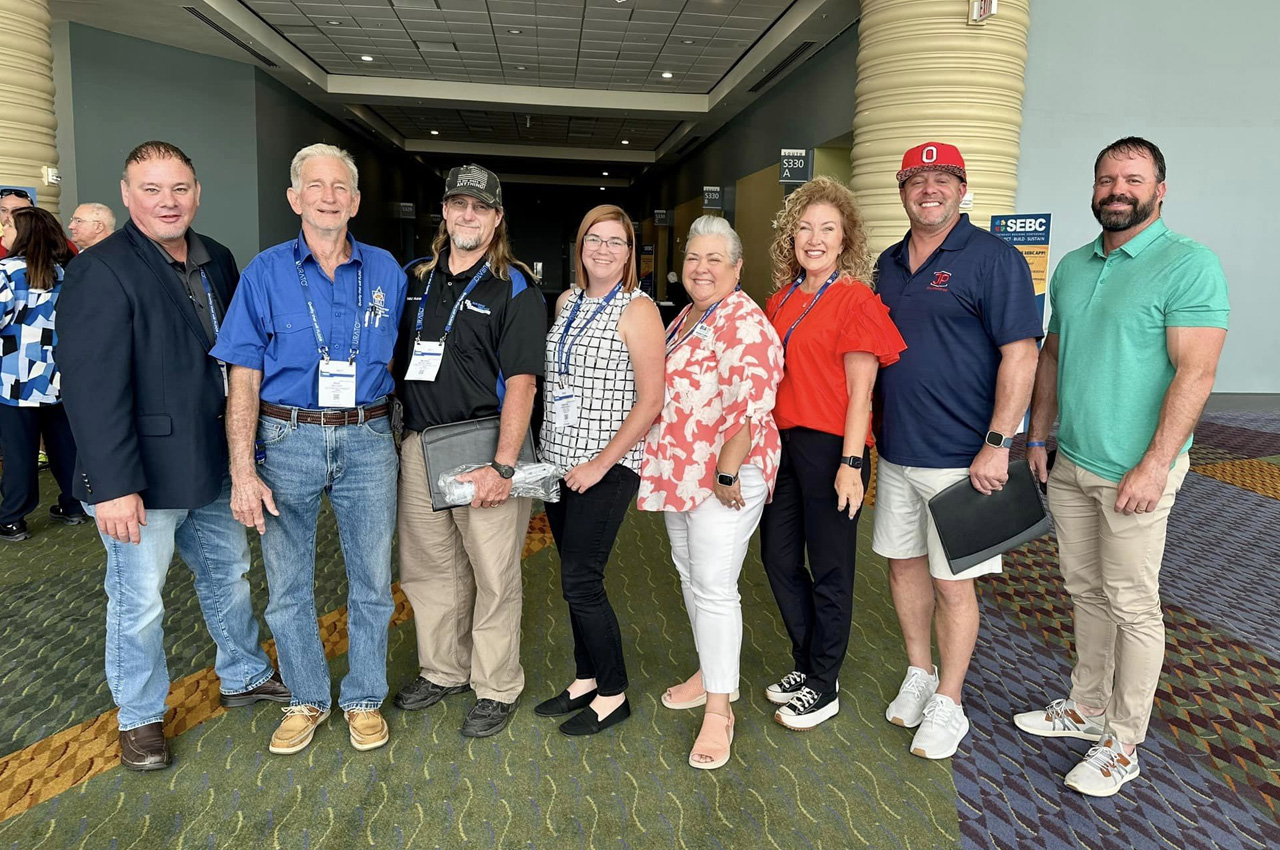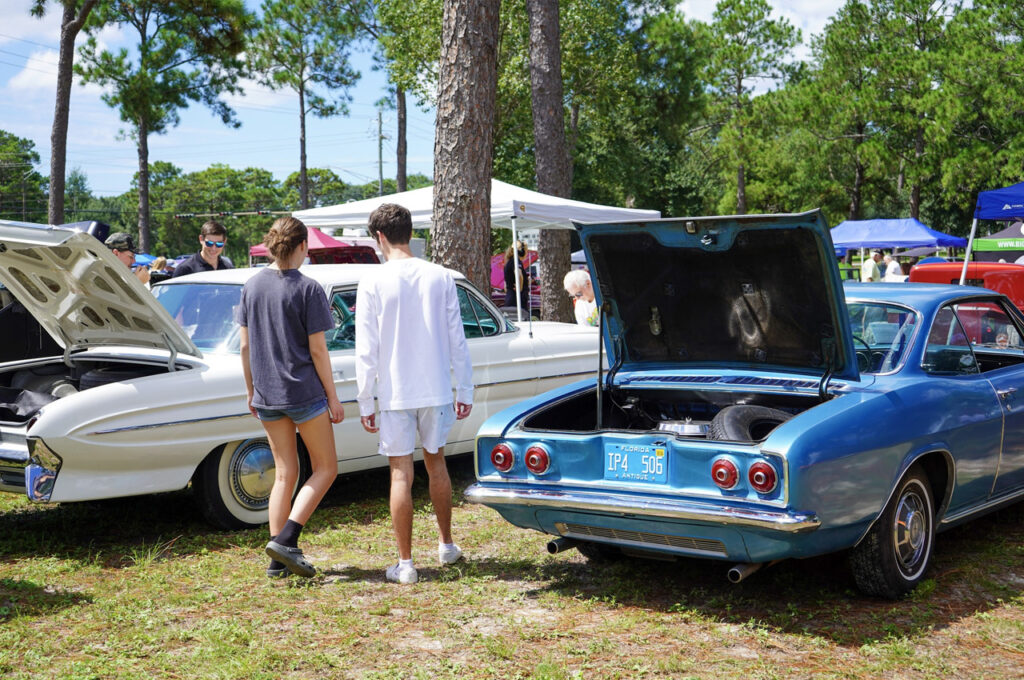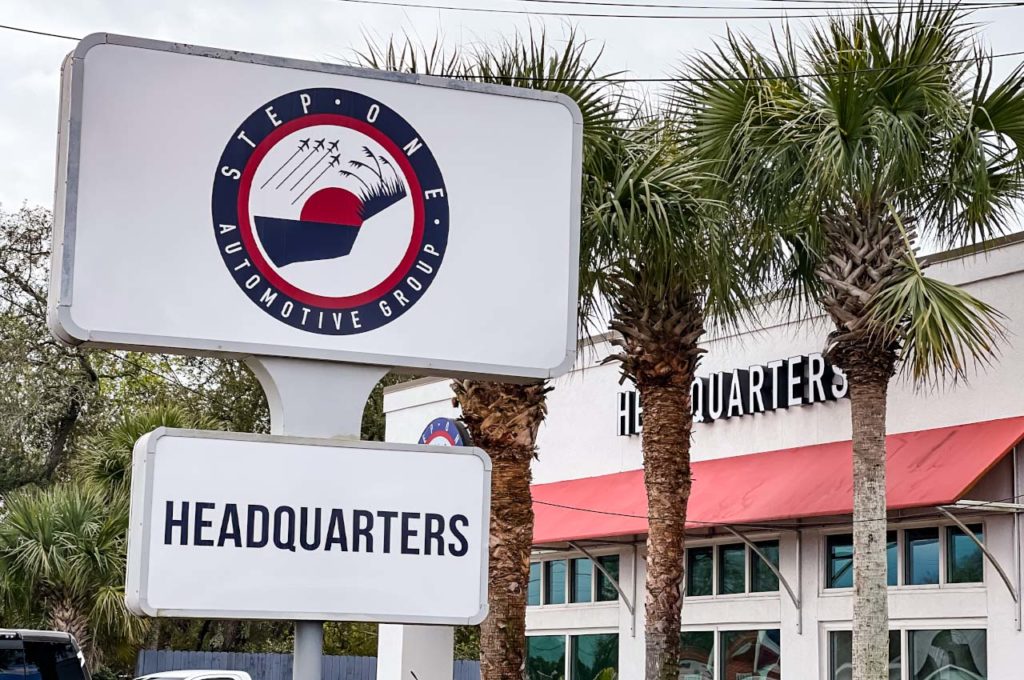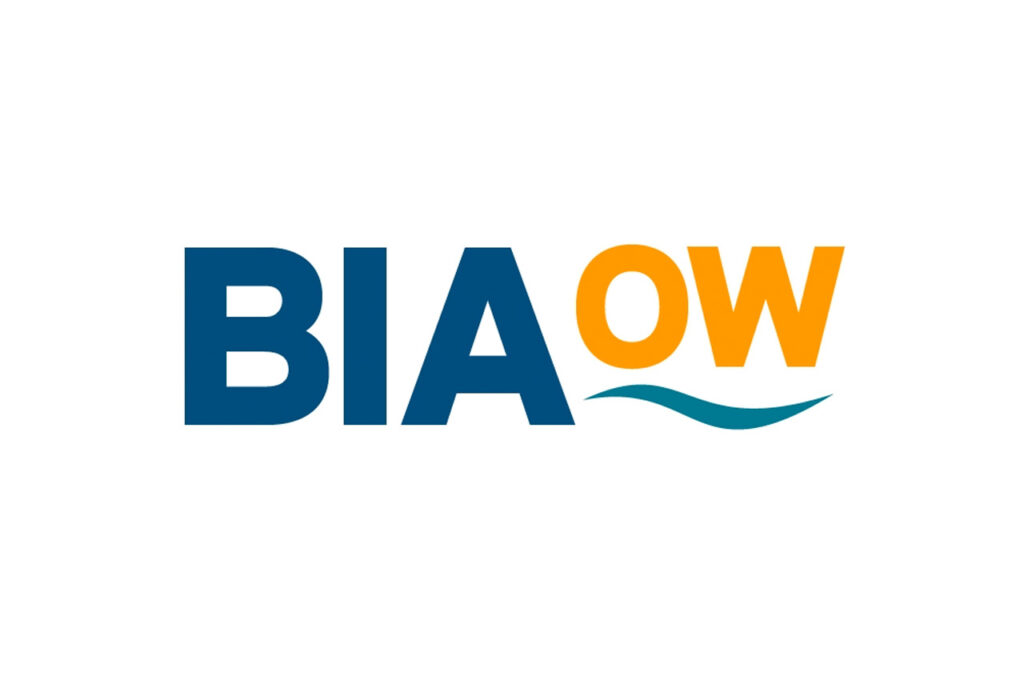Through collaborative leadership and strategic board decisions, the Building Industry Association of Okaloosa and Walton Counties transformed from struggling with member retention to becoming one of Florida’s success stories, demonstrating how strategic changes and focused leadership can revitalize an industry organization.
- This transformation began taking shape when the association’s leadership team identified the need to attract new voices and perspectives. Among those recruited was a local builder who embodied the very skepticism the association needed to overcome.
When now-President Jason Carducci was first approached about joining the Building Industry Association of Okaloosa and Walton Counties (BIAOW), he wasn’t interested. As a small contractor focused primarily on remodels and occasional new home construction, he didn’t see the value in joining an industry association.
- “I was a bit of a loner contractor,” Carducci recalled. “I didn’t really have a desire to meet other contractors. I was just doing my thing.”
That changed when seven determined individuals tracked him down and insisted on taking him to lunch. They had noticed the YouTube videos Carducci was producing for his business and saw potential for fresh perspectives in the organization. Andy Wilson, the incoming president at the time, led the recruitment effort that would become the driving catalyst for change.
Organizational Transformation
After attending a BIAOW event with over 200 people, Carducci’s perspective began to shift. He joined the organization and gradually worked his way up through leadership positions – from board member through the traditional ladder of secretary, treasurer, and vice president, before becoming president.
What started as a one-year presidential term evolved into a three-year commitment, as the board recognized and approved crucial organizational changes that have revitalized the association. One of his first major initiatives was changing the presidential term structure.
“No company like ours that has a board rotates their president every year,” Carducci explained. “Your ship will not float if you keep changing the captain and they want to keep doing things differently.”
Under his leadership and board direction, BIAOW has achieved several significant milestones:
- Membership has grown from 164 to over 200 members.
- Retention rates improved from 58.1% in December 2023 to 72.2% by October 2024, surpassing the state average of 71.1%.
- The association moved from being the third-lowest in state retention rankings to above average.
- Financial stability improved through strategic staffing changes and focused leadership.
Value of Membership
For those questioning the value of membership, Carducci offers a unique perspective as a former skeptic.
“I can say that every contractor, building contractor, commercial contractor, remodeling contractor should be a member of the association without a doubt. And I can say that because I was that person for many years that said I don’t need this.”
The association provides both direct and indirect benefits to members. Direct benefits include business opportunities through networking and association membership recognition. Indirect benefits encompass staying informed about new laws and codes, involvement with educational initiatives, and access to decision-makers.
- “If you’re a contractor and you’re not part of your local building industry association, you’re riding on coattails,” Carducci stated, “because what these groups of people are doing to help combat the issues benefits you.”
Political Advocacy and Industry Impact
The association’s political advocacy through state and national partnerships has proven crucial for the industry. With membership providing three-tier representation at local, state, and national levels, BIAOW actively engages in legislative issues affecting the construction industry.
This advocacy proved particularly vital during COVID-19, when BIAOW fought successfully to keep construction workers on the job. “During COVID, we fought hard to keep us working and we won,” Carducci explained. “If it wasn’t for our local, state and national association, everybody would have been sitting at home.”
The association regularly sends representatives to Tallahassee for quarterly conferences, where they advocate for their members’ interests. Unlike other groups focusing solely on retention areas or septic issues, BIAOW has taken a broader approach to industry challenges.
The association’s leadership team has successfully opposed potentially costly regulations that would have significantly increased construction costs.
- “Nobody knows that there was an activist group trying to make it to where trees had lawyers. So if you wanted to clear a lot, they were saying those trees have a right to representation,” Carducci revealed. “What do you think that would have done for cost?”
Recent advocacy efforts have included opposing new water retention requirements that would have added $6,000-$10,000 per lot in construction costs. Through coordinated efforts, the association also maintains regular meetings with county commissioners, building departments, and planning departments to address local industry challenges.
“What Building Industry Associations are doing to help combat the issues benefits everyone in the industry,” Carducci noted. “Your membership money provides the funding to battle these political issues that most contractors don’t even know about until after the fact.”
Educational Initiatives and Workforce Development
One of the association’s key initiatives has been addressing the construction industry’s labor shortage through strategic educational initiatives and career pathway development. Working collaboratively with local educators, the association has worked closely with Okaloosa County schools to expand construction programs, now reaching 1,600-1,800 students across the district who are actively learning construction trades and earning industry certifications.
- “Let’s focus on the labor issues. Let’s get the schools involved. Let’s push kids toward viable career paths,” Carducci explained. “That’s what we’ve been focused on, and that’s huge for anybody and everybody – plumbers, HVAC technicians, electricians, real estate professionals – anybody associated with the industry facing labor challenges.”
A significant victory came in April 2024 when legislation the association spearheaded was passed, creating structured summer employment opportunities for students aged 16 and up who are enrolled in construction programs. Previously, labor laws prevented these students from gaining hands-on experience on construction sites, even while their peers could work summer jobs in retail or food service.
“Our local association spearheaded this bill,” Carducci said. “To this day, I still say it was the fastest processed non-partisan bill I’ve ever seen go through.”
The legislation includes important safety provisions: supervisors must be 21 or older and OSHA-10 certified. Students in these programs already receive OSHA-10 certification through their HBI (Home Builders Institute) curriculum, which is provided free through the state association.
- “These students could get a job anywhere else, but they couldn’t even step foot on a construction site because of the way our labor law was worded,” Carducci explained. “Now, if you’re in the trades and want to mentor students and start training them outside of school programs, you can do that legally and safely.”
The initiative represents a crucial step in creating a school-to-workforce pipeline, allowing students to gain practical experience while exploring potential career paths in construction. This structured approach to workforce development aims to address the industry’s labor shortage while providing valuable career opportunities for local youth.
Community Engagement and Events
Through coordinated board efforts, the association has strengthened its community presence through various events and initiatives. Monthly breakfast meetings have become particularly valuable, featuring speakers from county government, planning and zoning, and other relevant sectors.
“These breakfast meetings have been huge,” Carducci noted. “We get commissioners, planning and zoning, tourist development – people talking about what’s going on with roads and what the future is going to look like.”
Through member input and board direction, the association has expanded its event calendar to include:
- Cornhole tournaments (now twice yearly due to popularity)
- Car shows
- Bowling tournaments
- Traditional Parade of Homes
These events not only provide networking opportunities but also raise funds for scholarships supporting students entering the construction industry.
Organizational Structure and Leadership
The transformation required difficult and sometimes controversial decisions that reshaped the association’s entire operational structure. In a bold move that raised eyebrows among longtime members, the board of directors streamlined from two staff members to one and significantly restructured its leadership approach.
- “When you’re in survival mode, it’s not personal. It’s about surviving and that’s it,” Carducci explained. “It was a change voted upon by the board as a whole.”
The board-approved changes extended beyond staffing to include a comprehensive board restructuring, focusing on active participation rather than traditional roles. While some longtime board members chose to step away during this transition, the association emerged stronger with a more engaged leadership team.
“If you’re going to sit on this board, you’re going to be involved,” Carducci emphasized. “We’re industry specific and politically driven. You’re just going to have to put the time in and not be complacent.”
The board’s collective decision to restructure, while initially met with skepticism, has proven successful. Under the new operational model, the association has achieved unprecedented growth and improved member engagement. Jennifer Fleming has taken the helm of daily operations, bringing new energy and efficiency to the organization.
- “When we initially made the changes, we were at 164 members and now we’re over 200,” Carducci noted. “People said we wouldn’t make it and couldn’t do it. Here we are 40-plus members later.”
Future Outlook
As Carducci prepares to step down after December 2024, he’s confident about the association’s future under incoming president Ferrin Campbell. “My ultimate goal with stepping down was to have the next person in line set up for success and to keep us moving forward,” Carducci said. “We’re on the track.”
- The association is approaching another milestone: financial stability. After years of struggling, BIAOW is close to operating in the black. The board’s strategic decisions and unified approach have positioned the association to potentially reach 300 members by the end of 2025.
The association’s turnaround caught statewide attention when the Florida Home Builders Association designated BIAOW as the Area 1 recruitment leader for the region spanning Pensacola to Tallahassee. This recognition validates the board’s strategic approach to organizational renewal.
“The future is bright for the Building Industry Association,” Carducci concluded. “Through everyone’s efforts, we have a renewed focus, the synergies are there and the labor force is bright with everything that the Okaloosa County School District is doing with trades.”
For industry professionals interested in membership or learning more about the Building Industry Association of Okaloosa and Walton Counties, the organization holds regular informational meetings and networking events. The association continues to accept new members, with several applications currently pending approval.





